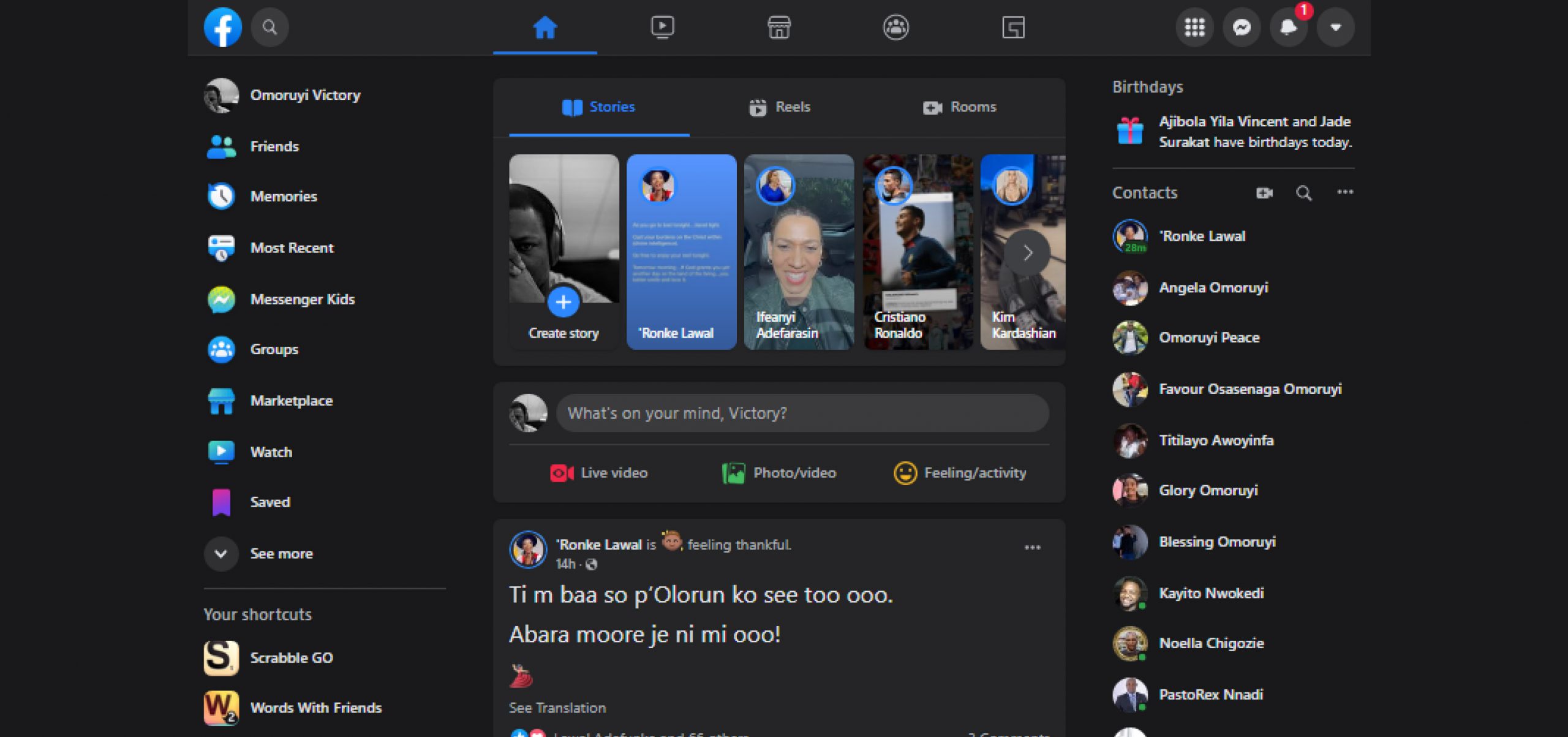The Process
As a result, I worked with the premise of 3 key assumptions, which were put to test by conducting interviews with 4 socio-culturally different candidates. Many findings were deduced, and 4 salient Insights were extracted.

As a result, I worked with the premise of 3 key assumptions, which were put to test by conducting interviews with 4 socio-culturally different candidates. Many findings were deduced, and 4 salient Insights were extracted.
Facebook has grown to include a variety of features that are mostly irrelevant to the user.
The Suggested Adverts and posts are more often distracting and are mostly ignored by users.
Targeted adverts don’t seem to be smart enough as it concerns the user desires/ preferences, and most often a misfire.
Posts of friends suffer and get lost in the feed due to the advertisement strategy and frequency employed by Facebook.
Users no longer rely on Facebook for credible, useful information due to the recent propagation of misinformation.
Misinformation spread through Facebook have caused a lot of division between friends and family.
Users do not trust Facebook with personal privacy and security interests.
Users feel that the trouble or complexity of permanently deleting the account is too much, they rather have it and not use it.
Facebook users only have the account for very few features.
Most users don’t use or need Facebook to make or remain connected to friends/ family.
Users who have Facebook account have it because they need the account to use Facebook messenger.
Most user do not care much for the memories feature update as it more often brings up embarrassing posts of their past.
Facebook’s ever-growing list of features fails to capture the interest or meet the needs of most users.

Users can easily maintain or create connections with their loved ones without using or relying on Facebook.

The proliferation of misinformation on Facebook has eroded users’ confidence in the information they get from the site.

The interview was conducted with Facebook users- with different social backgrounds, age brackets, and employment statuses. Three of the four reside in BC Canada, the fourth lives and works in Osun State, Nigeria. The purpose of the interview is to test out the three selected assumptions as well as gain further insights that would be relevant to understand the user experience of Facebook.


All interviewed don’t concern themselves with any other Facebook feature or services other than Facebook’s main feed, Facebook Messenger and Facebook Marketplace.
A third of the interviewees rely on other social media services to stay connected with friends and families.
One user once relied on Facebook in its early days for information and a realtime news feed. however, All currently don’t trust Facebook as a credible source of information.
All interviewees have been active users of the platform for more than a decade.
Most of the interviewees do not have a problem with Facebook’s security and privacy policies/practices.
All interviewees do not make friends through the platform anymore.
All interviewees find the suggested adverts, posts, and friends intrusive and annoying. They generally ignore them.
They all feel Facebook is bloated with features that get in the way of the core purpose of why they signed up for Facebook in the first place- connecting friends.